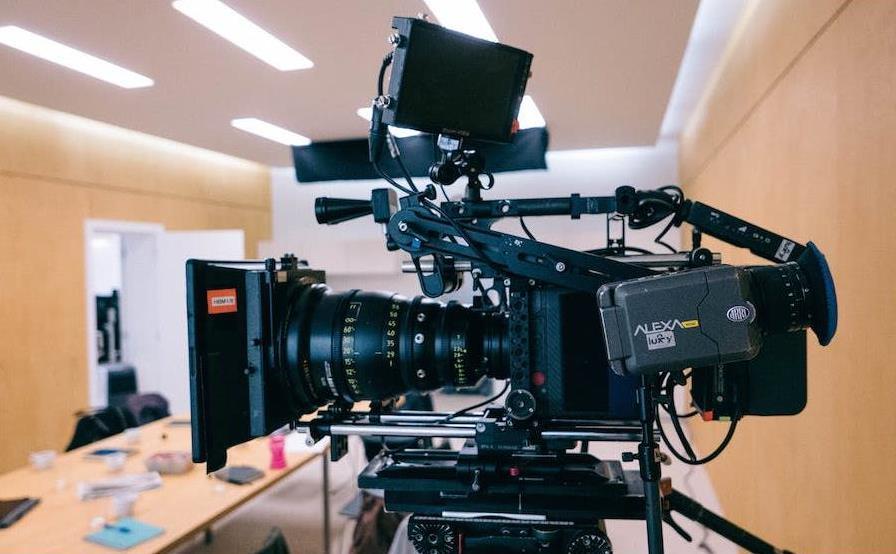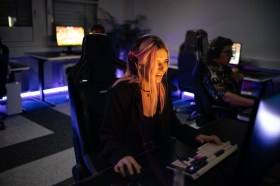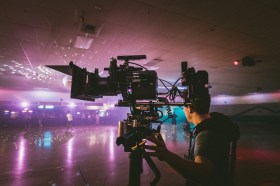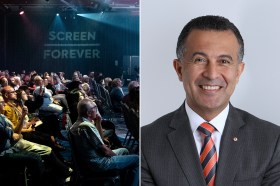COVID-19 has hit the equipment suppliers pretty hard. The business model is about buying expensive gear which becomes obsolete quickly and renting it on high rotation so it can be replaced. They are carrying the need to check and refurbish gear quickly, to transport it efficiently, and to provide it out of hours, all of which implies substantial outgoings even when the gear is on the shelf.
So equipment businesses, often running on debt, are vulnerable to downturns. As Sue Greenshields, the proprietor of national supplier Lemac, says to me, ‘Everybody returned the cameras. I’ve never had all our cameras in the building. They are the only things not social distancing – they’re all crowded together having an in-house party on the shelves.’
Lemac is a venerable business and Sue Greenshields has weathered hard times with her sense of humour intact but she acknowledges this is the most brutal problem of all. ‘I’ve got huge overheads and thirty staff across rentals, sales and equipment service and when it stops dead…. It’s never done that before. Lemac is 45 years old this year and in that time I’ve never had a loss of revenue like this month has already delivered. The only thing helping us is we still have some sales activity but it too is significantly reduced and has supply chain issues.
‘I’ve got people on rosters, people working from home, and some on leave. It’s been a bit of a nightmare really trying to work out what to do with people,’ says Greenshields. ‘I’ve been trying to use people to work on all the stuff you don’t get round to doing, servicing all the kits. We don’t want to lose all the great people and talent we have working for us and many have been with the company for years. It is very stressful.
‘I’m very glad they brought in the JobKeeper program. It’s saved us a bit but whether they’ve saved us enough I don’t know yet. It has been difficult to navigate it and we have to cashflow it but without it we couldn’t keep the doors open. I know a lot of the freelancers out there are struggling and having to apply for the JobSeeker payment so the sooner we can see production resume the better for all of us. COVID has certainly shown up the flaws in the system when it comes to supporting those working in the Arts and Entertainment industry in general.
‘We had a lot of series running and obviously they want to go back and keep shooting. Nobody knows yet when this will happen and it all depends on how long the restrictions last and how creative we are in managing to work within them.’
Greenshields is keeping a critical, cautious eye on the commercial free-to-air channels being able to suspend their quota obligations. ‘There has to be incentive to continue to make Australian content. Presently there is a Screen Australia /ACMA options paper just released on Supporting Australian stories on our screens. It has four options being considered one of which is deregulation which would be a disaster. We should all be aware of what is being looked at. We could just be left in a vacuum.’
While we focus on the human problems, the sector relies totally on a substantial infrastructure from gear to post production and studio companies. The pressure on them is relentless because they have to service their debts, and cover very large overheads.
But at the moment Sue Greenshields reports, ‘We are all trying to come up with different things to do and how to do things differently. Streaming has become a big thing. We are talking to people and sharing knowledge and I guess it comes down to the network that’s around you. I’m a bit ‘zoomed’ out really, but we’re a pretty resilient lot and I’m hopeful we will get through this. This is a tough time for many, many industries. We’re not the only ones.’
Read more: Travelling light, a solo shooter’s gear guide





